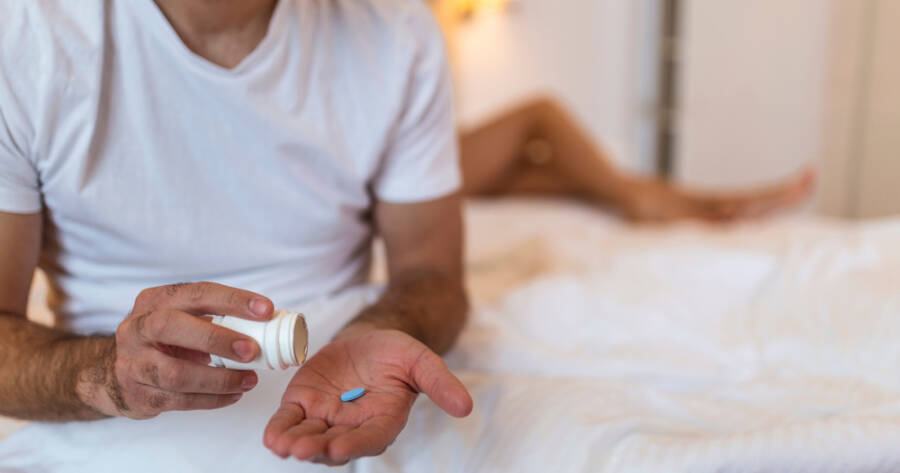Erectile dysfunction (ED) affects millions of men worldwide, influencing not only physical well-being but also emotional health and intimate relationships. While the condition can be challenging, the good news is that various treatments and strategies are available to manage and mitigate symptoms. From lifestyle changes to medical interventions, this article explores several options that may help. It’s important to remember that results will vary between individuals, and consulting a healthcare provider is essential to identify the most suitable approach.
Understanding Erectile Dysfunction
Erectile dysfunction occurs when a man finds it difficult to achieve or maintain an erection firm enough for sexual intercourse. While occasional difficulty isn’t uncommon, persistent ED may indicate an underlying issue.
There are several potential causes, including:
- Physical conditions: Cardiovascular disease, diabetes, obesity, and high blood pressure.
- Psychological factors: Stress, anxiety, and depression.
- Lifestyle habits: Smoking, excessive alcohol consumption, and sedentary living.
- Medications or injuries: Certain prescription drugs or surgeries affecting the pelvic area.
Given the multifaceted nature of ED, treating it often requires a combination of approaches, each tailored to the individual’s specific circumstances.
Medical Treatments and Therapies
When lifestyle changes alone aren’t sufficient, various medical treatments may help manage ED.
1. Oral Medications
Medications like sildenafil (Viagra), tadalafil (Cialis), and vardenafil (Levitra) are commonly prescribed. These drugs work by improving blood flow to the penis, making it easier to achieve an erection with sexual stimulation. However, they are not suitable for everyone, especially those with certain heart conditions or who take nitrates. Side effects like headaches, dizziness, or nasal congestion may also occur.
2. Injection and Intraurethral Therapies
For men who don’t respond to oral medications, injectable treatments like alprostadil may be considered. These treatments involve administering medication directly into the penis to promote blood flow. Another option is an alprostadil suppository inserted into the urethra. These therapies can be effective, but they may also carry risks such as pain at the injection site or prolonged erections (priapism).
3. Vacuum Erection Devices (VEDs)
A vacuum erection device uses suction to draw blood into the penis, creating an erection. A band is then placed at the base of the penis to maintain firmness. Although effective for many men, it can take time to get used to the device, and some find it cumbersome or uncomfortable.
4. Hormone Therapy
Low testosterone levels can sometimes contribute to ED. If blood tests reveal a hormonal imbalance, testosterone replacement therapy (TRT) might be explored. However, TRT is only recommended for men with medically confirmed low testosterone and should be closely monitored by a healthcare provider.
Lifestyle Adjustments and Natural Remedies
In some cases, making targeted lifestyle changes may lead to significant improvements in erectile function. These adjustments aim to address underlying causes and improve overall health.
1. Exercise and Weight Management
Regular physical activity, particularly cardiovascular exercises, can improve blood circulation and reduce the risk factors for ED, such as obesity and high blood pressure. Even moderate weight loss has been associated with better erectile function in men with obesity.
2. Dietary Modifications
A diet rich in fruits, vegetables, whole grains, and healthy fats—like the Mediterranean diet—may benefit those experiencing ED. Foods high in antioxidants and nitric oxide precursors, such as leafy greens, berries, and beets, are believed to support vascular health and improve blood flow.
3. Reducing Stress and Improving Sleep
Mental health can have a direct impact on sexual performance. Stress-reducing activities such as meditation, yoga, or counseling may help improve ED symptoms. Similarly, prioritizing sleep can regulate hormone levels and improve mood, both of which are essential for sexual well-being.
4. Limiting Alcohol and Quitting Smoking
Alcohol and tobacco are known contributors to erectile dysfunction. Quitting smoking and reducing alcohol intake can improve vascular health, potentially leading to better erections. Some men may notice gradual improvements after adopting these lifestyle changes.
Exploring Psychotherapy and Emotional Support
Because emotional factors often contribute to ED, psychotherapy or counseling may provide benefits, especially when psychological stress or relationship issues play a role.
1. Cognitive Behavioral Therapy (CBT)
CBT helps individuals address negative thought patterns and anxiety that might interfere with sexual performance. A therapist can guide men through strategies to reduce performance-related stress and regain confidence.
2. Couples Therapy
When ED affects a relationship, couples therapy can open up lines of communication between partners. This type of therapy helps both individuals understand the condition and work through emotional challenges together.
3. Mindfulness Practices
Incorporating mindfulness techniques can reduce anxiety and increase sexual enjoyment. Practices like mindful breathing and progressive muscle relaxation help men focus on the present moment rather than worrying about performance.
When to See a Doctor
While occasional issues with erections aren’t unusual, persistent ED should not be ignored. It may signal a more serious health condition, such as heart disease or diabetes.
A healthcare provider can assess potential causes, recommend treatments, and monitor progress over time. Early intervention often results in more effective management, so it’s important to seek medical advice sooner rather than later.
Learn More Today!
Erectile dysfunction is a complex condition with various contributing factors, but it is also highly treatable. Whether through lifestyle changes, medications, or therapy, many men find ways to improve their symptoms and restore intimacy in their relationships.
However, no single solution works for everyone, and results are never guaranteed. By working closely with a healthcare provider and being open to trying different approaches, men can explore treatments that align with their unique needs and improve both physical and emotional well-being over time.
